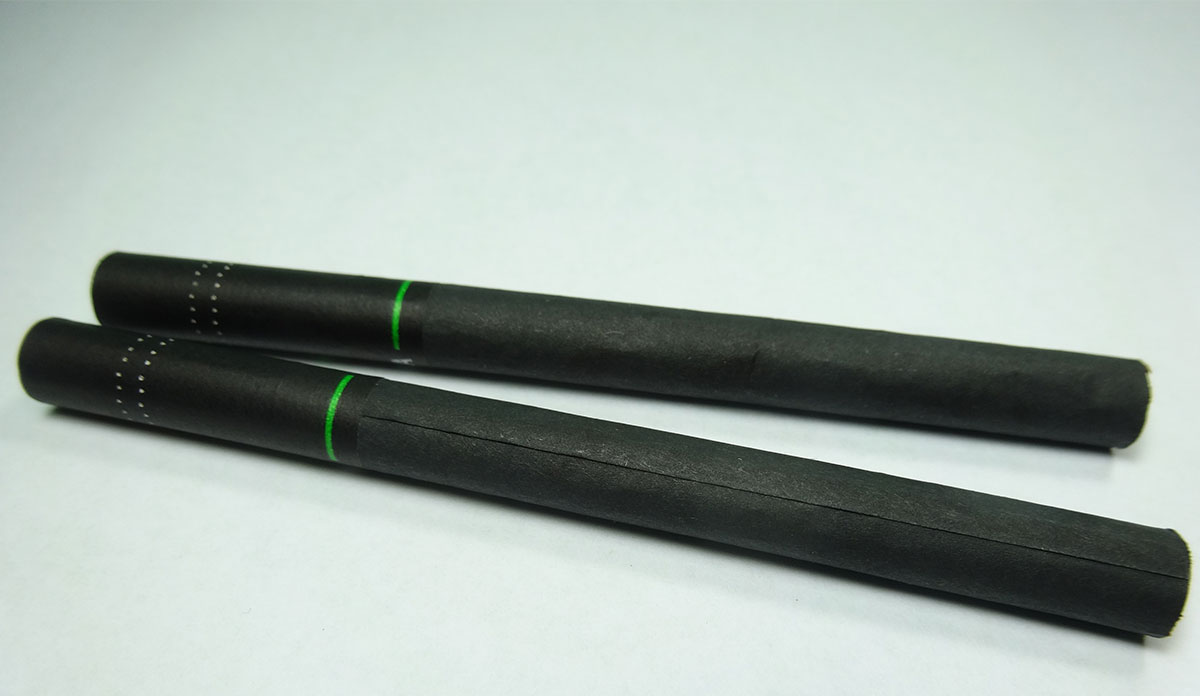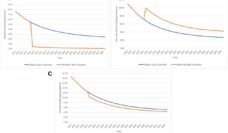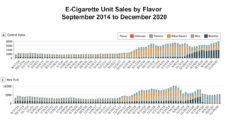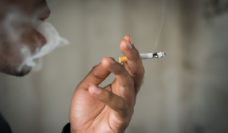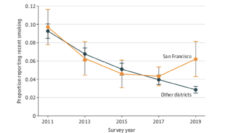Smoking rates have fallen significantly over the past few decades, representing a major public health achievement. However, menthol cigarette use has declined more slowly, especially among Black and Hispanic youth. Black smokers have historically used menthol flavored products at a significantly higher rate than other racial groups. The FDA has recognized the disproportionate harm menthol tobacco poses to communities of color. To tackle these disparities, the agency announced plans in Spring 2021 to ban menthol flavoring in cigars and cigarettes and has initiated the formal rulemaking process.
While agreeing with the FDA’s overarching goal, we argue that a ban is a top-down, paternalistic approach that may lead to an illicit market for menthol tobacco products, and potentially exacerbate racial disparities in policing. It may also limit community buy-in which is essential for the effort’s success.
A ban is generally viewed as the most extreme manifestation of paternalism, defined as interference with an individual’s liberty, ostensibly to promote that individual’s best interest. There are instances where curtailing liberties can be defended in the name of public health, with pandemic-related mask requirements and travel restrictions serving as recent examples. However, such actions must pass stricter scrutiny when they unevenly affect one racial group, as with Black menthol smokers. Ultimately, the question is whether the government is justified in severely limiting choice among Black smokers while leaving other smokers largely unaffected.
Ultimately, the question is whether the government is justified in severely limiting choice among Black smokers while leaving other smokers largely unaffected.
Civil rights groups worry that a ban could widen racial disparities in policing and the criminal justice system. While the FDA does not have jurisdiction to enforce a ban against an individual user, the sale and distribution of banned tobacco products would be considered a federal crime punishable as a felony. A prohibition on menthol flavoring risks expanding an already sizeable illicit cigarette market which would likely be concentrated in Black communities. One must look no further than the police killing of Eric Garner to see how larger illicit markets could increase the chances of tragic interactions between the Black community and police. The FDA’s proposed action risks turning a public health matter into a policing matter.
The realistic public health gains from a menthol flavoring ban are also debatable. A 2011 modeling study, by assuming a 30% quit rate, estimated that a ban would lead to an overall reduction in smoking prevalence of 9.7% and a 24.8% reduction among Black Americans by 2050. Yet real-world analyses have been less encouraging. Following a menthol tobacco ban in seven Canadian provinces, only 21.5% of menthol smokers quit smoking, while the rest switched to non-menthol products or circumvented the ban to continue smoking menthol cigarettes. Likewise, a Massachusetts menthol ban led to decreased cigarette sales within the state but a corresponding increase in sales in neighboring states.
Though the FDA’s plan to address racial disparities by eliminating menthol tobacco products may be well-intentioned, as a top-down action, it risks creating unintended consequences that worsen the inequalities it hopes to address. A more equitable and effective approach would be to partner with the Black community to generate solutions from within.
Photo via Getty Images









